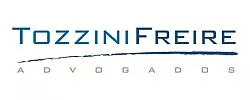With the publication of Service Guideline No. 47, dated April 9, 2018, ANVISA updated sanitary control procedures for imported products and how such procedures will be internally administered by the Agency.
With the changes in the rules for distribution, analysis, physical inspection, request for interdiction and review of denial appeals, ANVISA expects to reduce delays in the release of goods. Some importers reported considerable delays, especially after the publication of Service Guideline No. 34/2017, which was revoked by the new regulation.
Under the new rules, the approval process will be divided according to the nature of the imported product – the Health Surveillance Posts will be allocated to (i) Health Products, (ii) Medicines, (iii) Food, and (iv) Cosmetics, Sanitation, Hygiene and others. In addition, the distribution of the approval processes will be defined not only by the chronological order of the requests but also according to new criteria set out in the annex to the new Service Guideline No. 47/2018.
Such criteria establishes a priority for, among others: (i) processes previously analyzed, (ii) direct importation by the Ministry of Health or Health Department, (iii) products that require storage at a temperature below 20°C (68°F), (iv) products with a shelf life of less than 60 days, foods and other perishable products, (v) importation by land/road, (vi) clinical research, compassionate use and expanded access, (vii) importation by particular patients, (viii) ready-to-use radiopharmaceuticals, (ix) products at risk of shortages, (x) products for fairs and events, (xi) food products specific for religious festivals, (xii) large volume cargoes, etc.
Therefore, importers of products subject to ANVISA's control should benefit from a reduction in the time for release of cargo. In addition, with these more transparent criteria, it will be possible to act more effectively before ANVISA in cases of delays and issues with the clearance of imports.
The content of this article is intended to provide a general guide to the subject matter. Specialist advice should be sought about your specific circumstances.

